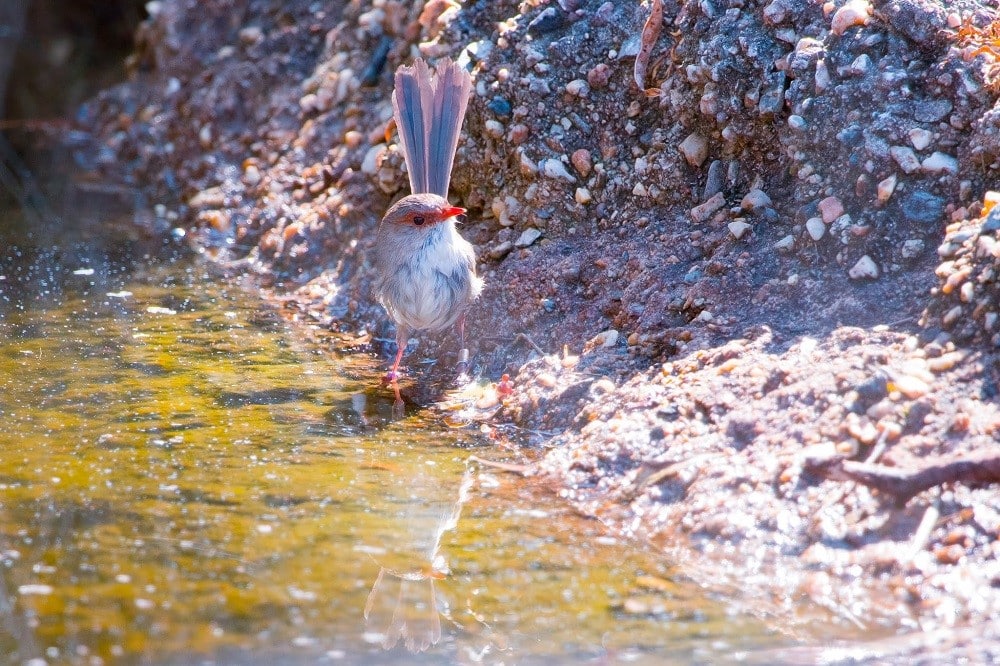Like human hunter-gatherers, superb fairy-wrens are picky when it comes to helping others in distress, argue researchers from the Australian National University and their colleagues.
Their study is the first to examine the decision-making process of animals living in a multilevel society and the benefits of co-operation.
“Both species [wrens and humans] live in multilevel societies, starting with a core group of just a few closely connected individuals,” Ettore Camerlenghi, lead author and PhD candidate at Monash University, said.
“The wrens, like hunter-gatherers, have three distinct types of relations: those from the same breeding group, familiar individuals from the same community, and unfamiliar birds from the wider population.”
“Like humans, the different social levels seem to have different functions,” Associate Professor Damien Farine, a co-author from ANU and the University of Zurich, said.
Superb fairy-wrens are more likely to take risks to help members of their close social circle, the scientists found.
To test the birds’ willingness to help others in need, the research team broadcast distress calls from individuals with different social relationships.
“Distress calls are a cry for help when birds are attacked by a predator,” study co-author Professor Robert Magrath, from the ANU Research School of Biology, said.
“We found superb fairy-wrens are careful about who they aid. They’ll risk life and limb for birds from the same breeding group, but are more careful when helping casual acquaintances.
“As for strangers, amazingly, they completely ignored the cries for help.”
“Core breeding units give individuals access to high value help when needed, whereas the broader society of familiar birds give wrens the power in numbers when facing predators,” Professor Farine concluded.
“Exploring patterns of cooperation can help us understand the benefits of living in multilevel societies.”
The findings were published in Current Biology on Thursday.



